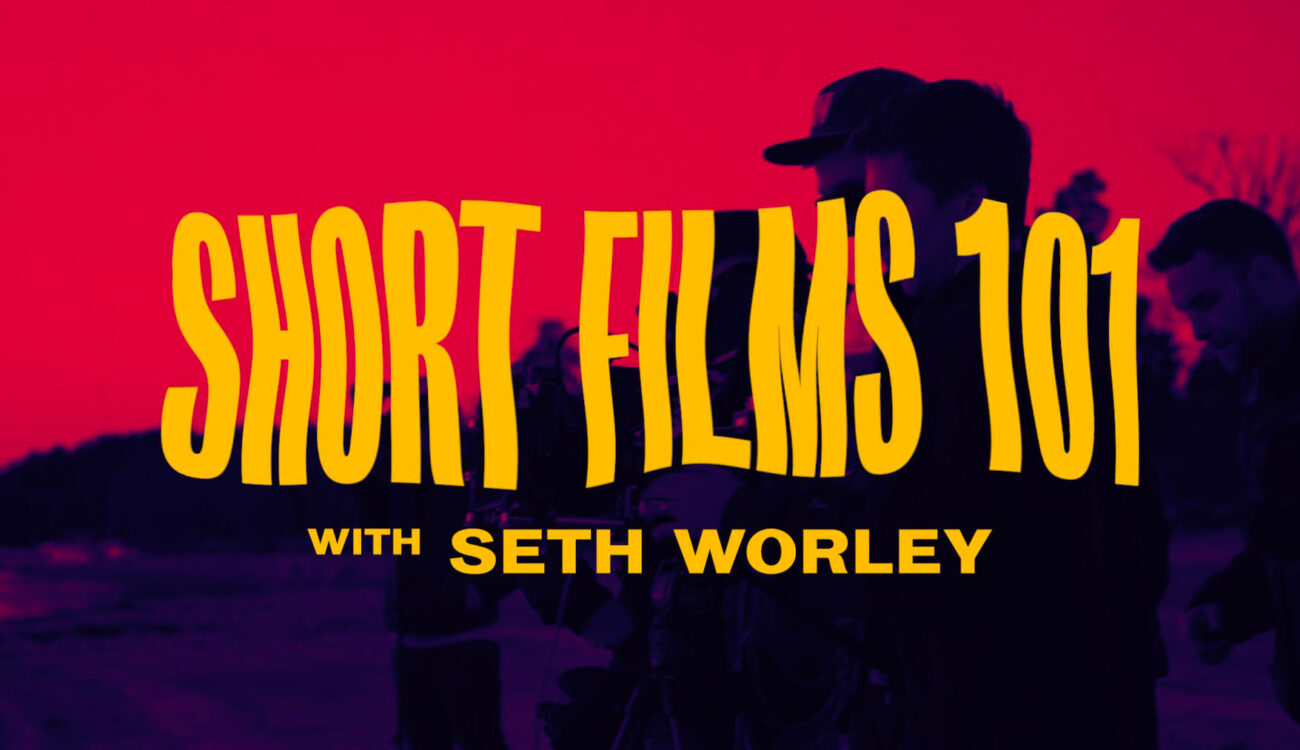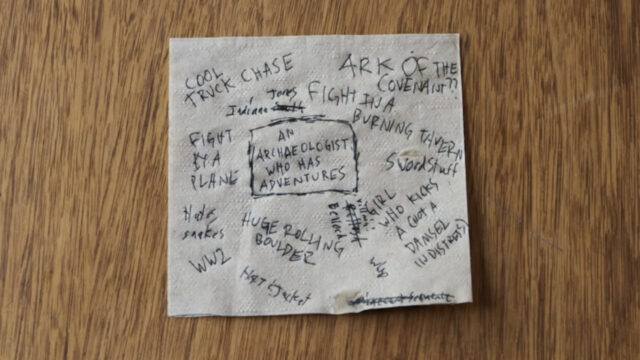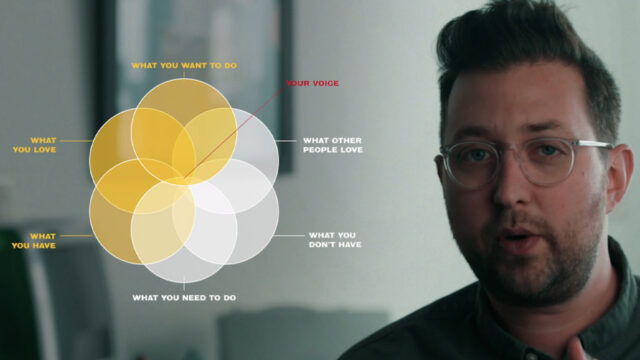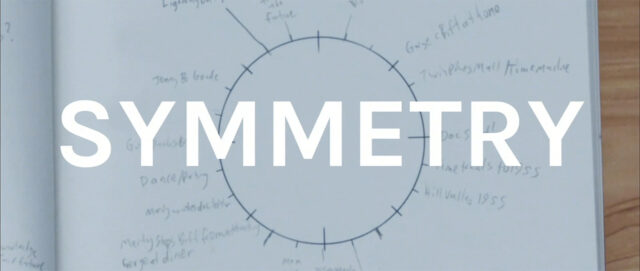
“Features are marathons. Shorts are sprints.” As a creator, you know that the driving force behind a good script is having a compelling story that tells a message in words and pictures. Sounds obvious, but it can be challenging if your idea is vague and you only have 10 minutes of screen time. Fortunately, the writer and director Seth Worley knows a trick or two to get you going. In his course, “Short Films 101”, which is available on MZed.com, he not only explains how to write a compelling story for a short film, but also offers practical exercises on finding your own voice, structuring material, and troubleshooting on-set mishaps.
Even if his name doesn’t ring a bell, trust me, you have seen his films. Seth Worley has created shorts and branded content for clients like JJ Abrams’s Bad Robot, Red Giant, Film Riot, and others. His work has been featured in Forbes, the Hollywood Reporter, and HULU, to name a few. However, don’t expect a conventional filmmaking class from him. Seth believes that creating movies should be fun, and it is always a unique journey from A to Z. While he shares his journey, you may discover your own.

No matter what genre or topic you base your short film on, the following tips can enhance your writing. If you want to go further and dive into the production, directing, and even VFX magic, you can watch the full course here.
Writing a compelling story for a short in your own voice
If you’re just starting out or skipped this step in your filmmaking career – pause here and ask yourself a question: “What is my true voice?”. What mark will we leave on any project we touch? Seth Worley believes a filmmaker’s voice comes from a combination of our personal taste, experience, and circumstances. According to him, it is found at the intersection between the following areas:

Let’s clarify some of them. The first and foremost question is what do you love? Which films could you watch over and over again? What stories are your favorites? Write them down, put your list aside, and now dig deeper – what did you like as a little kid, and then in middle school? Mary Poppins? Disney cartoons? Coming-of-age drama? Bad comedies? Look for your guilty pleasures – including those things you’re now embarrassed to admit.
Seth is sure that each found relic belongs to the list of things that have influenced us, and we ought to own and embrace them. While standing up to and declaring your “uncool” love, you might discover that many people also secretly loved the same thing. If not for Tarantino, who would admit they enjoy watching the combination of brutality, black humor, and unrealistic blood flying through a scene?

A reverse question could be: what about your audience and their influence on your script? Should you listen to what others say they love? Seth’s answer: yes and no. Pay attention to what people are talking about, notice what they spend money on, but don’t write it down. That will help you to stay relevant without sacrificing your own fresh ideas.
Some further areas to examine in terms of your voice are:
- What is the goal of your movie? Why do you want to do it?
- Is there anything you need to do right now? Sometimes there are assignments in our life which we may see as distractions. Could they, on the contrary, hide exciting opportunities for a short story (even if they don’t have anything to do with filmmaking)?
- What resources are available to you? Let them inspire and focus you, but also challenge them.
- What are the limitations? As Seth puts it: how you respond to challenges can and will define your creative voice as a storyteller.
Why make a short film in the first place?
You should make a short film if you want to have fun, to sharpen your skills, or if there is one specific idea which can’t stay inside your head anymore. That’s it, says Seth Worley, and moves to the reasons why you shouldn’t make a short. For example, if you only crave likes or think it would be a good addition to your resume.
Most shorts end up being bad and they are a ton of work.
Seth Worley, a quote from his course “Short Films 101”, MZed.com
In his opinion, it’s also a mistake to make a short film as proof of having a concept for a feature. Instead, he suggests you cut a 30 to 60-second sizzle reel from your test footage. The industry is so full of content that no one has time to watch your 15-minute narrative, Seth says.
Of course, there are exceptions. One that comes to my mind is the story of “Whiplash” by the director Damien Chazelle. When he wrote the script, several production companies wanted to buy it but were not excited about the then-unknown young director. In order to persuade them and show them his vision, Damien made a short of the same name. That got him a ticket to Hollywood and led him to “La La Land” and his latest work – “Babylon”. Here is how this journey began:
The most important thing about your story idea
My first short film was a student non-budget project, and it was a disaster. We were not only too ambitious, trying to make a sci-fi drama without a decent budget – just imagine the effort in production design, costumes, and some simple yet important effects – but mostly because of the story itself. We had 10 different locations and 3 film worlds (real, virtual, and dreams), with dialog, events, and plot twists. After the test screening, my team and I took a brief survey only to realize that the audience didn’t get even half of the story. It was simply too complicated.

My biggest takeaway from this project? Shorts demand simplicity and that’s what Seth will tell you in his course. They should be about one thing: no subplots, no B stories, and little to no character development. Just take one problem and escalate it to something surprising. If you want to write a compelling story for a short film, take this tip seriously. The less, the better, and remember it’s okay if the stakes seem small compared to actual problems. In the world of your film even missing the ice cream truck could be the worst thing possible. Unravel it.
Writing a compelling story for a short: the storyclock structure
One interesting element Seth Worley uses in his screenwriting is the so-called storyclock structure. We explained in detail how it works here. This approach is also applicable to short films. Instead of 90 minutes, take a clock with 10 or 15 minutes and picture your story like this:

Now take ideas and place them around this clock. Such outline visualization will help you see where the important beats are and which gaps need to be filled. You can also use symmetry: for example, the third act frequently mirrors the first one. If you have a great element in mind for one side of the clock, you can use it to create a meaningful scene on the opposite side.
To learn how to use this structuring tool, Seth also recommends watching other shorts, writing down the timecodes of the significant beats, and trying to recreate their storyclock afterward. Want a bit of practice? Here’s one of Seth’s films showcasing his approach:
Run as fast as you can
So, you’ve found your voice, one perfect story idea, a problem to solve, and a strong structure. It’s time to sprint! Seth believes that in nine times out of ten, you can get the first draft of a short film written in one day. Then wait a bit, live your life, come back and re-read it. Take notes. Rewrite your script and show it to other people. Get their thoughts. All creation is iteration, so revise. Wash, rinse, repeat.
When you’re happy with your draft, take it to preproduction. That’s where Seth Worley has plenty of know-how, learned through trial and error. All his insights are available in the full course “Short films 101” on MZed.com.
What else do you get with MZed Pro?
As an MZed Pro member, you have access to over 500 hours of filmmaking education, including Starting a YouTube Channel with Kitty Peters. Plus, we’re constantly adding more courses (several in production right now).
For just $30/month (billed annually at $349), here’s what you’ll get:
- 54+ courses, over 850+ high-quality lessons, spanning over 500 hours of learning.
- Highly produced courses from educators who have decades of experience and awards, including a Pulitzer Prize and an Academy Award.
- Unlimited access to stream all content during the 12 months.
- Offline download and viewing with the MZed iOS app.
- Discounts to ARRI Academy online courses, exclusively on MZed.
- Most of our courses provide an industry-recognized certificate upon completion.
- Purchasing the courses outright would cost over $9,000.
- Course topics include cinematography, directing, lighting, cameras and lenses, producing, indie filmmaking, writing, editing, color grading, audio, time-lapse, pitch decks, and more.
- 7-day money-back guarantee if you decide it’s not for you.
Full disclosure: MZed is owned by CineD
Join MZed Pro now and start watching today!
Feature image credit: Seth Worley / MZed.
Do you make short films? What’s your genre? What tools do you use when generating ideas and writing short scripts? Share your experience and fun set stories in the comments below – we would love to hear them!









































